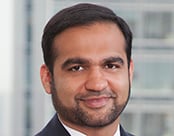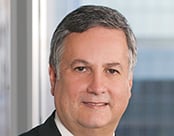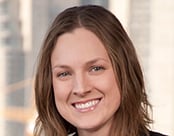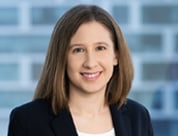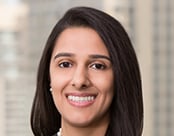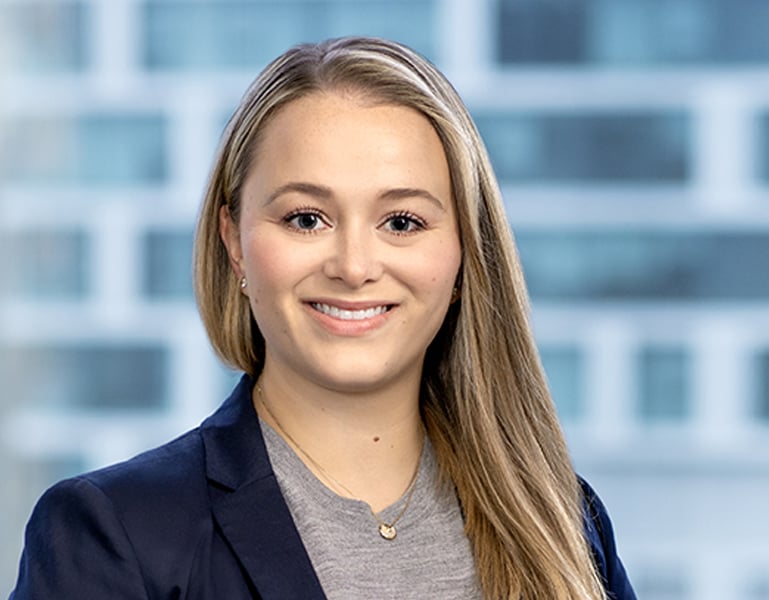Highlights from 2024 ALI-CLE Accountants' Liability Conference
The annual ALI-CLE Accountants’ Liability Conference occurred in Washington, D.C. on May 16 and 17, 2024 and was co-hosted by Junaid A. Zubairi, Chair of Vedder Price’s Government Investigations and White Collar Defense group, and Veronica Callahan of Arnold & Porter LLP. The conference featured a wide variety of speakers, including regulators from the Securities and Exchange Commission (“SEC”) and the Public Company Accounting Oversight Board (“PCAOB”), in-house counsel, outside counsel, and consultants.
Paul Munter, Chief Accountant for the Office of the Chief Accountant at the SEC, kicked off the conference on May 16 with a keynote address focusing on the “tone at the top” at audit firms.[1] In his address, Chief Accountant Munter stated that accounting is a profession, not an industry. Accordingly, he emphasized the important role audit firm leaders have in setting an appropriate tone that centers on integrity and professionalism. As an example, Chief Accountant Munter discussed the scenario of a partner at an audit firm being subject to an enforcement order. He noted that, if the partner faced no discipline within the firm as a result of the enforcement order, and was instead rewarded for bringing in large amounts of business, that tone could send the wrong message and signal to others within the firm—namely, that enforcement violations could be “efficient” breaches or simply the cost of doing business. Chief Accountant Munter stated that this has the potential to undermine public trust and normalize unethical conduct.
Additionally, Chief Accountant Munter discussed the importance of accountants maintaining total independence from clients at all times and placing public interest obligations ahead of profits. He explained that achieving independence requires leaders to lead by example, provide transparency within their audit firms, and empower junior accountants to exercise professional skepticism. He further stated that poor “tone at the top” has a “bad apple effect.” He noted that studies have shown that unethical leaders result in the attraction and retention of employees who are more likely to engage in unprofessional behavior, while those who are ethical are more likely to leave the firm.
Chief Accountant Munter also explained that appropriate “tone at the top” requires leadership to enforce a firm’s policies and procedures by their actions, not just in their messaging. Instead of simply giving a speech, leaders should create effective processes for evaluation of employees, compensation, and open communication for feedback from subordinates. Further, Chief Accountant Munter noted that, in selecting employees for advancement, firms must ensure that they exhibit the necessary leadership qualities to set the right “tone at the top” and to preserve a culture of professionalism. He also stated that for any professional who has been suspended, firms should evaluate whether that individual has the qualities to continue in a leadership role.
Finally, Chief Accountant Munter warned that maintaining an appropriate “tone of the top” requires, at times, making tough business choices. For example, maintaining professional integrity might require a firm to terminate a certain client relationship. Additionally, with respect to alternative practice structures, he cautioned that such practice structures may increase the risk of the loss of independence or may cause a firm to experience a “distraction effect”—that is, where the firm places an increased focus on non-audit services for audit clients in order to drive value. He urged firms to recognize that the “tone at the top” must extend throughout the entire organization, not just the parts of the organization that provide attest services. Chief Accountant Munter ended his address by stating that the public is an auditor’s most important client.
George Botic, Board member of the PCAOB, issued a keynote address on day two of the conference. Mr. Botic began his address by stating that, as a certified public accountant himself, he has the utmost respect for the important role audit firms play in serving the public, and he noted that the work of an auditor is “noble, vibrant, and resilient.”
Mr. Botic’s remarks covered three overarching topics: (1) historical context on the role of the financial statement audit in society, (2) the PCAOB’s recent rulemaking activity, and (3) reflections on the audit firm as an “organism.” In discussing the historical importance of auditors, Mr. Botic recalled an individual named Ivar Kreuger, whose securities were the most widely held nationally and internationally by 1929. However, Mr. Botic noted that it was a “house of cards” because Kreuger hand-prepared his companies’ deceitful financial statements and his accountants did not have the independence nor qualifications necessary to uncover his scheme. Mr. Botic explained that the collapse of Kreuger’s scheme was the catalyst for the requirement for independent audit reports. He further asserted that a key lesson from Kreuger’s story is the importance of having the courage to maintain a “steady skeptic voice” as an auditor.
Additionally, addressing the PCAOB’s recent rulemaking, Mr. Botic highlighted the new QC1000 and AS1000 standards and related amendments, which are now with the SEC for review. He explained that QC1000 will significantly change the requirements for a quality control system used by auditors. The QC1000 standard addresses eight components necessary for a quality control system: (1) a risk assessment process, (2) a monitoring and remediation process, (3) governance and leadership, (4) ethics and independence, (5) acceptance and continuance of engagements, (6) engagement performance, (7) resources, and (8) information and communication. Mr. Botic explained that a firm’s principal executive officer ultimately remains responsible and accountable for the firm’s quality control system as a whole and must certify the firm’s annual evaluation of that system to the PCAOB. Further, Mr. Botic emphasized certain QC1000 standard provisions that support a strong “speak up” culture, which provisions require a firm to collect and address complaints or allegations and to protect individuals from retaliation.
Mr. Botic also discussed AS1000, which addresses the general responsibilities of an auditor. Mr. Botic explained that the standard replaces and improves upon four standards relating to an auditor’s responsibilities concerning reasonable assurance, due professional care, professional skepticism, independence, competence, and professional judgment. He noted that, while AS1000 does not change an auditor’s responsibilities, it does streamline and clarify those responsibilities by (1) adding context to the concept of reasonable assurance to emphasize that it is a “high level” of assurance, (2) highlighting the importance of an auditor’s role in determining critical audit matters (“CAMs”), and (3) confirming an auditor’s requirement to take into account PCAOB audit interpretations.
Mr. Botic concluded his address by stating that an audit firm is a complex organism in the “auditing ecosystem.” In order to keep a firm healthy, Mr. Botic posited that there are five processes that must work together: (1) accountability at all levels of the firm, (2) independence in fact and appearance, especially given the rise of alternative practice structures, (3) integrity, which the PCAOB continues to address via enforcement actions relating to cheating scandals, (4) an investor focus that listens and adapts to investor concerns, and (5) the firm’s voice, meaning their communications internally, within the profession, to investors, and to the public.
In addition to the remarks by Chief Accountant Munter and Mr. Botic, the conference featured several panel discussions regarding regulators’ perspectives on auditor liability, the PCAOB’s inspection program, and a focus on “gatekeeper” liability in the context of regulatory investigations.
Key takeaways from these panel discussions included the following:
- With the increased prevalence of special purpose acquisition companies (SPACs), cybersecurity issues, environment and social governance-focused companies, and the use of artificial intelligence, the Staff of the SEC expects audit firms to ensure that their risk assessments and audit processes are appropriately evolving.
- The PCAOB continues to examine instances of exam cheating at audit firms, as evidenced by a recent record $25 million fine.
- The SEC and PCAOB regularly coordinate and seek complimentary remedies to maximize the protection of the public.For example, while the PCAOB cannot impose secondary liability for contributory negligence, the SEC can.Additionally, while PCAOB proceedings have certain confidentiality restrictions, the SEC’s public proceedings help keep the public and professionals informed.
- In conducting internal investigations, businesses and their counsel should carefully (1) ensure that all relevant data is being preserved, (2) consider privilege issues when communicating with former employees, and (3) determine the appropriate time to consider self-reporting violations to regulators.
- The Staff of the SEC continues to discuss the benefits of meaningful cooperating and self-reporting by firms when firms discover misconduct or potential violations.Further, the Staff stated that complying with prior settlements or orders is critical; in the event there is another issue in the future, that will play a role in the Staff’s view of potential remediation.
- The PCAOB has enhanced its inspection programs, including by establishing an inspections quality group to ensure a consistent quality of their inspections work.The PCAOB has also created a “target team” of inspectors, who perform inspections work across firms to review areas of emerging risks. Finally, in the past year, the PCAOB has launched an initiative to better understand firm culture and address the “root cause” of issues stemming from deficient cultures.
- According to PCAOB Staff, audit deficiency rates remain “unacceptably high,” and there continues to be a “downward trend” in audit quality.Consequently, the PCAOB has increased transparency and revamped inspection reports to provide more information, including relating to Part II criticisms.The Staff also encourages audit firms to engage in a meaningful dialogue with the Staff during the 12-month period following their final inspection report to discuss remediation plans.
- The PCAOB Staff expects “complete access” to audit workpapers during the inspection process, which requires inspectors to (1) have sole discretion to select audit engagements for review, (2) have the ability to retain information needed to support their inspection work, and (3) have direct access to interview all relevant personnel.In instances where information may be restricted, such as Confidential Supervisory Information relating to banking activities, firms are expected to remove such information prior to providing workpapers to the PCAOB inspectors but provide the inspectors a complete list of items that were removed.
If you have any questions, please reach out to Junaid A. Zubairi at jzubairi@vedderprice.com, Steven R. Berger at sberger@vedderprice.com, Rachel T. Copenhaver at rcopenhaver@vedderprice.com, Courtney M. Brown at cmbrown@vedderprice.com, Nusra Ismail at nismail@vedderpricce.com, Rachel Trouba at rtrouba@vedderprice.com, or the Vedder Price attorney with whom you normally work.
[1] Prior to the conference, Chief Accountant Paul Munter issued a statement on May 15, 2024 titled “Fostering a Healthy ‘Tone at the Top’ at Audit Firms,” available at https://www.sec.gov/news/statement/munter-statement-audit-firms-051524.
Vedder Thinking | Articles Highlights from 2024 ALI-CLE Accountants' Liability Conference
Article
May 20, 2024
The annual ALI-CLE Accountants’ Liability Conference occurred in Washington, D.C. on May 16 and 17, 2024 and was co-hosted by Junaid A. Zubairi, Chair of Vedder Price’s Government Investigations and White Collar Defense group, and Veronica Callahan of Arnold & Porter LLP. The conference featured a wide variety of speakers, including regulators from the Securities and Exchange Commission (“SEC”) and the Public Company Accounting Oversight Board (“PCAOB”), in-house counsel, outside counsel, and consultants.
Paul Munter, Chief Accountant for the Office of the Chief Accountant at the SEC, kicked off the conference on May 16 with a keynote address focusing on the “tone at the top” at audit firms.[1] In his address, Chief Accountant Munter stated that accounting is a profession, not an industry. Accordingly, he emphasized the important role audit firm leaders have in setting an appropriate tone that centers on integrity and professionalism. As an example, Chief Accountant Munter discussed the scenario of a partner at an audit firm being subject to an enforcement order. He noted that, if the partner faced no discipline within the firm as a result of the enforcement order, and was instead rewarded for bringing in large amounts of business, that tone could send the wrong message and signal to others within the firm—namely, that enforcement violations could be “efficient” breaches or simply the cost of doing business. Chief Accountant Munter stated that this has the potential to undermine public trust and normalize unethical conduct.
Additionally, Chief Accountant Munter discussed the importance of accountants maintaining total independence from clients at all times and placing public interest obligations ahead of profits. He explained that achieving independence requires leaders to lead by example, provide transparency within their audit firms, and empower junior accountants to exercise professional skepticism. He further stated that poor “tone at the top” has a “bad apple effect.” He noted that studies have shown that unethical leaders result in the attraction and retention of employees who are more likely to engage in unprofessional behavior, while those who are ethical are more likely to leave the firm.
Chief Accountant Munter also explained that appropriate “tone at the top” requires leadership to enforce a firm’s policies and procedures by their actions, not just in their messaging. Instead of simply giving a speech, leaders should create effective processes for evaluation of employees, compensation, and open communication for feedback from subordinates. Further, Chief Accountant Munter noted that, in selecting employees for advancement, firms must ensure that they exhibit the necessary leadership qualities to set the right “tone at the top” and to preserve a culture of professionalism. He also stated that for any professional who has been suspended, firms should evaluate whether that individual has the qualities to continue in a leadership role.
Finally, Chief Accountant Munter warned that maintaining an appropriate “tone of the top” requires, at times, making tough business choices. For example, maintaining professional integrity might require a firm to terminate a certain client relationship. Additionally, with respect to alternative practice structures, he cautioned that such practice structures may increase the risk of the loss of independence or may cause a firm to experience a “distraction effect”—that is, where the firm places an increased focus on non-audit services for audit clients in order to drive value. He urged firms to recognize that the “tone at the top” must extend throughout the entire organization, not just the parts of the organization that provide attest services. Chief Accountant Munter ended his address by stating that the public is an auditor’s most important client.
George Botic, Board member of the PCAOB, issued a keynote address on day two of the conference. Mr. Botic began his address by stating that, as a certified public accountant himself, he has the utmost respect for the important role audit firms play in serving the public, and he noted that the work of an auditor is “noble, vibrant, and resilient.”
Mr. Botic’s remarks covered three overarching topics: (1) historical context on the role of the financial statement audit in society, (2) the PCAOB’s recent rulemaking activity, and (3) reflections on the audit firm as an “organism.” In discussing the historical importance of auditors, Mr. Botic recalled an individual named Ivar Kreuger, whose securities were the most widely held nationally and internationally by 1929. However, Mr. Botic noted that it was a “house of cards” because Kreuger hand-prepared his companies’ deceitful financial statements and his accountants did not have the independence nor qualifications necessary to uncover his scheme. Mr. Botic explained that the collapse of Kreuger’s scheme was the catalyst for the requirement for independent audit reports. He further asserted that a key lesson from Kreuger’s story is the importance of having the courage to maintain a “steady skeptic voice” as an auditor.
Additionally, addressing the PCAOB’s recent rulemaking, Mr. Botic highlighted the new QC1000 and AS1000 standards and related amendments, which are now with the SEC for review. He explained that QC1000 will significantly change the requirements for a quality control system used by auditors. The QC1000 standard addresses eight components necessary for a quality control system: (1) a risk assessment process, (2) a monitoring and remediation process, (3) governance and leadership, (4) ethics and independence, (5) acceptance and continuance of engagements, (6) engagement performance, (7) resources, and (8) information and communication. Mr. Botic explained that a firm’s principal executive officer ultimately remains responsible and accountable for the firm’s quality control system as a whole and must certify the firm’s annual evaluation of that system to the PCAOB. Further, Mr. Botic emphasized certain QC1000 standard provisions that support a strong “speak up” culture, which provisions require a firm to collect and address complaints or allegations and to protect individuals from retaliation.
Mr. Botic also discussed AS1000, which addresses the general responsibilities of an auditor. Mr. Botic explained that the standard replaces and improves upon four standards relating to an auditor’s responsibilities concerning reasonable assurance, due professional care, professional skepticism, independence, competence, and professional judgment. He noted that, while AS1000 does not change an auditor’s responsibilities, it does streamline and clarify those responsibilities by (1) adding context to the concept of reasonable assurance to emphasize that it is a “high level” of assurance, (2) highlighting the importance of an auditor’s role in determining critical audit matters (“CAMs”), and (3) confirming an auditor’s requirement to take into account PCAOB audit interpretations.
Mr. Botic concluded his address by stating that an audit firm is a complex organism in the “auditing ecosystem.” In order to keep a firm healthy, Mr. Botic posited that there are five processes that must work together: (1) accountability at all levels of the firm, (2) independence in fact and appearance, especially given the rise of alternative practice structures, (3) integrity, which the PCAOB continues to address via enforcement actions relating to cheating scandals, (4) an investor focus that listens and adapts to investor concerns, and (5) the firm’s voice, meaning their communications internally, within the profession, to investors, and to the public.
In addition to the remarks by Chief Accountant Munter and Mr. Botic, the conference featured several panel discussions regarding regulators’ perspectives on auditor liability, the PCAOB’s inspection program, and a focus on “gatekeeper” liability in the context of regulatory investigations.
Key takeaways from these panel discussions included the following:
- With the increased prevalence of special purpose acquisition companies (SPACs), cybersecurity issues, environment and social governance-focused companies, and the use of artificial intelligence, the Staff of the SEC expects audit firms to ensure that their risk assessments and audit processes are appropriately evolving.
- The PCAOB continues to examine instances of exam cheating at audit firms, as evidenced by a recent record $25 million fine.
- The SEC and PCAOB regularly coordinate and seek complimentary remedies to maximize the protection of the public.For example, while the PCAOB cannot impose secondary liability for contributory negligence, the SEC can.Additionally, while PCAOB proceedings have certain confidentiality restrictions, the SEC’s public proceedings help keep the public and professionals informed.
- In conducting internal investigations, businesses and their counsel should carefully (1) ensure that all relevant data is being preserved, (2) consider privilege issues when communicating with former employees, and (3) determine the appropriate time to consider self-reporting violations to regulators.
- The Staff of the SEC continues to discuss the benefits of meaningful cooperating and self-reporting by firms when firms discover misconduct or potential violations.Further, the Staff stated that complying with prior settlements or orders is critical; in the event there is another issue in the future, that will play a role in the Staff’s view of potential remediation.
- The PCAOB has enhanced its inspection programs, including by establishing an inspections quality group to ensure a consistent quality of their inspections work.The PCAOB has also created a “target team” of inspectors, who perform inspections work across firms to review areas of emerging risks. Finally, in the past year, the PCAOB has launched an initiative to better understand firm culture and address the “root cause” of issues stemming from deficient cultures.
- According to PCAOB Staff, audit deficiency rates remain “unacceptably high,” and there continues to be a “downward trend” in audit quality.Consequently, the PCAOB has increased transparency and revamped inspection reports to provide more information, including relating to Part II criticisms.The Staff also encourages audit firms to engage in a meaningful dialogue with the Staff during the 12-month period following their final inspection report to discuss remediation plans.
- The PCAOB Staff expects “complete access” to audit workpapers during the inspection process, which requires inspectors to (1) have sole discretion to select audit engagements for review, (2) have the ability to retain information needed to support their inspection work, and (3) have direct access to interview all relevant personnel.In instances where information may be restricted, such as Confidential Supervisory Information relating to banking activities, firms are expected to remove such information prior to providing workpapers to the PCAOB inspectors but provide the inspectors a complete list of items that were removed.
If you have any questions, please reach out to Junaid A. Zubairi at jzubairi@vedderprice.com, Steven R. Berger at sberger@vedderprice.com, Rachel T. Copenhaver at rcopenhaver@vedderprice.com, Courtney M. Brown at cmbrown@vedderprice.com, Nusra Ismail at nismail@vedderpricce.com, Rachel Trouba at rtrouba@vedderprice.com, or the Vedder Price attorney with whom you normally work.
[1] Prior to the conference, Chief Accountant Paul Munter issued a statement on May 15, 2024 titled “Fostering a Healthy ‘Tone at the Top’ at Audit Firms,” available at https://www.sec.gov/news/statement/munter-statement-audit-firms-051524.
